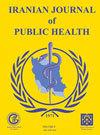Budgeting in Healthcare Systems and Organizations: A Systematic Review
IF 1.4
4区 医学
Q3 Medicine
引用次数: 0
Abstract
Background: Budgeting is the process resource allocation to produce the best output according to the revenue levels involved. Among the constraints that healthcare organizations, including hospitals, both in the public and private sectors, grapple with is budgetary constraints. Therefore, cost control and resource management should be considered in healthcare organizations under such circumstances. Methods: We aimed to identify methods of budgeting in healthcare systems and organizations as a systematic review. To extract and analyze the data, a form was designed by the researcher to define budgeting methods proposed in the literature and to identify their strengths, weaknesses, and dimensions. The search was conducted in Google Scholar, Web of science, Pub med and Scopus databases covering the period 1990-2022. Results: Overall, 33 articles were included in the study for extraction and final analysis. The study results were reported in four main themes: healthcare system budgeting, capital budgeting, global budgeting, and performance-based budgeting. Conclusion: Each budgeting approach has its own pros and cons and requires meeting certain requirements. These approaches are selected and implemented depending on each country's infrastructure and conditions as well as its organizations. These infrastructures need to be thoroughly examined before implementing any budgeting method, and then a budgeting method should be selected accordingly.医疗保健系统和组织的预算:系统回顾
背景:预算是根据所涉及的收入水平分配资源以产生最佳产出的过程。包括医院在内的公共和私营医疗机构面临的制约因素之一是预算限制。因此,在这种情况下,医疗保健组织应考虑成本控制和资源管理。
方法:我们的目的是确定方法预算在医疗保健系统和组织作为一个系统的回顾。为了提取和分析数据,研究者设计了一个表格来定义文献中提出的预算方法,并确定它们的优势、劣势和维度。在b谷歌Scholar、Web of science、Pub med和Scopus数据库中进行检索,检索时间为1990-2022年。
结果:共纳入33篇文献进行提取和最终分析。研究结果分为四个主题:医疗系统预算、资本预算、全球预算和基于绩效的预算。
结论:每一种预算方法都有自己的优点和缺点,需要满足一定的要求。这些方法的选择和实施取决于每个国家的基础设施和条件以及其组织。在实施任何预算方法之前,需要对这些基础设施进行彻底检查,然后应相应地选择预算方法。
本文章由计算机程序翻译,如有差异,请以英文原文为准。
求助全文
约1分钟内获得全文
求助全文
来源期刊

Iranian Journal of Public Health
医学-公共卫生、环境卫生与职业卫生
CiteScore
2.20
自引率
7.10%
发文量
0
审稿时长
2 months
期刊介绍:
Iranian Journal of Public Health has been continuously published since 1971, as the only Journal in all health domains, with wide distribution (including WHO in Geneva and Cairo) in two languages (English and Persian). From 2001 issue, the Journal is published only in English language. During the last 41 years more than 2000 scientific research papers, results of health activities, surveys and services, have been published in this Journal. To meet the increasing demand of respected researchers, as of January 2012, the Journal is published monthly. I wish this will assist to promote the level of global knowledge. The main topics that the Journal would welcome are: Bioethics, Disaster and Health, Entomology, Epidemiology, Health and Environment, Health Economics, Health Services, Immunology, Medical Genetics, Mental Health, Microbiology, Nutrition and Food Safety, Occupational Health, Oral Health. We would be very delighted to receive your Original papers, Review Articles, Short communications, Case reports and Scientific Letters to the Editor on the above mentioned research areas.
 求助内容:
求助内容: 应助结果提醒方式:
应助结果提醒方式:


